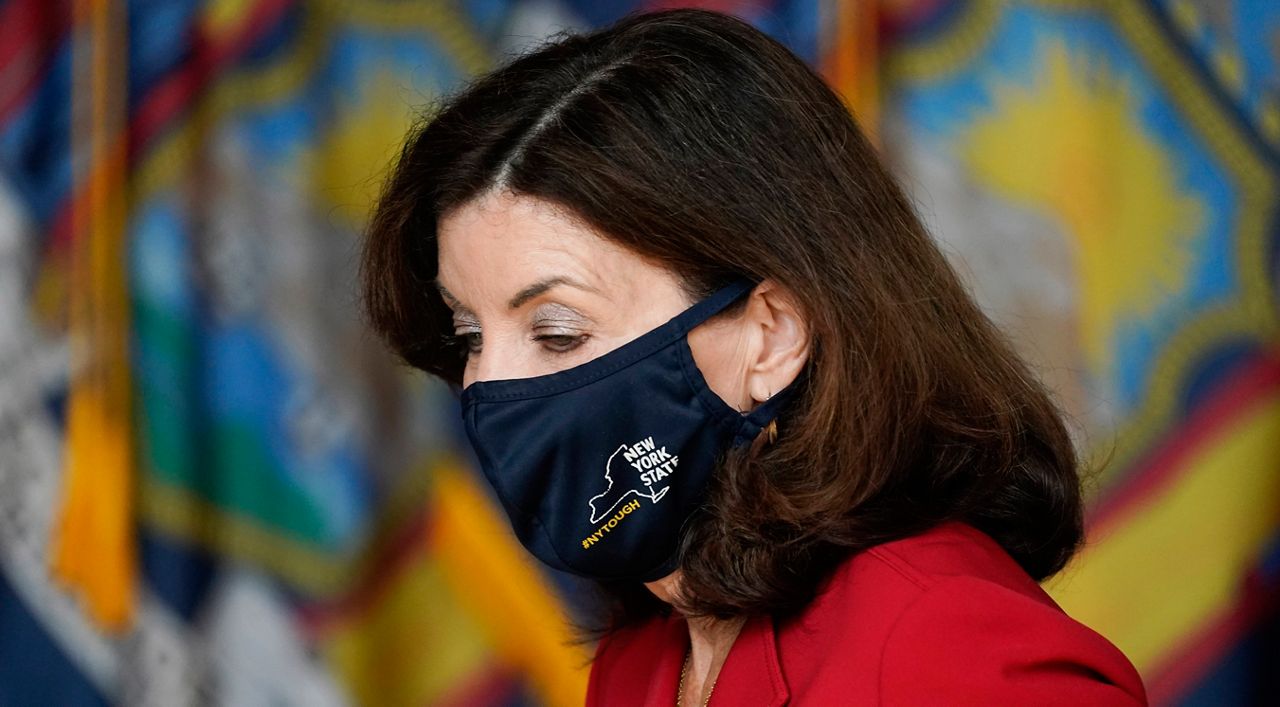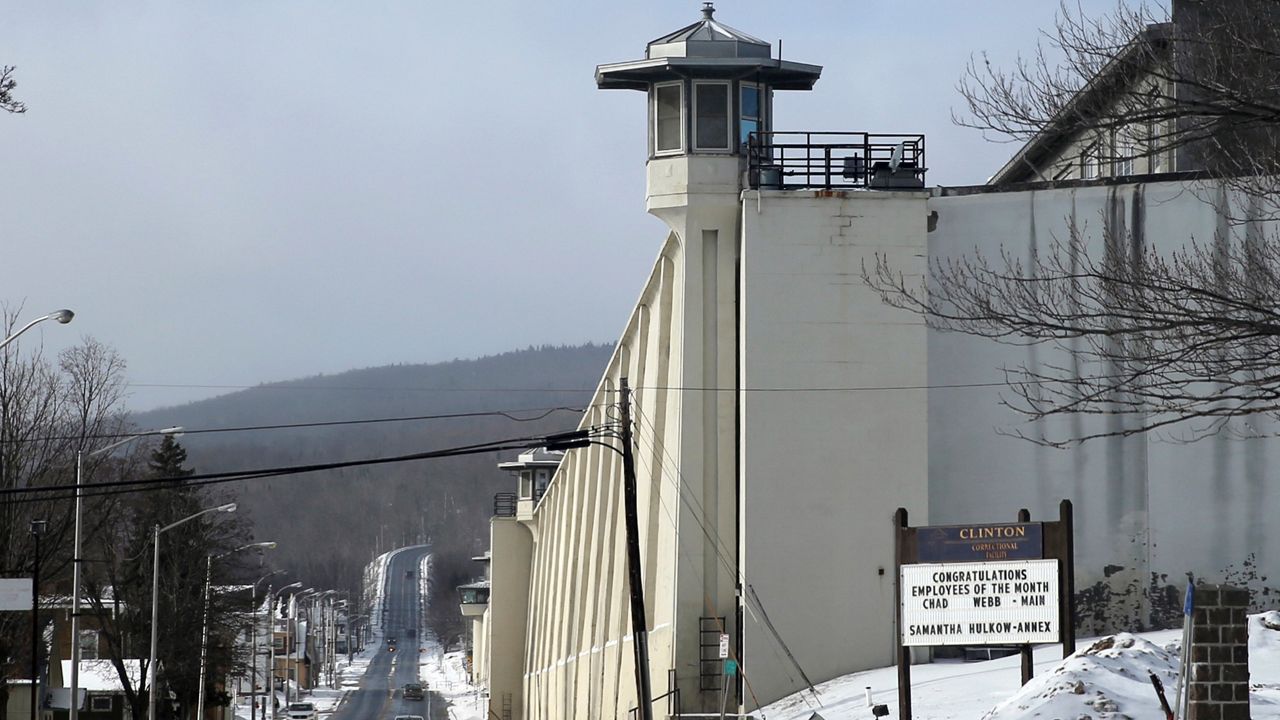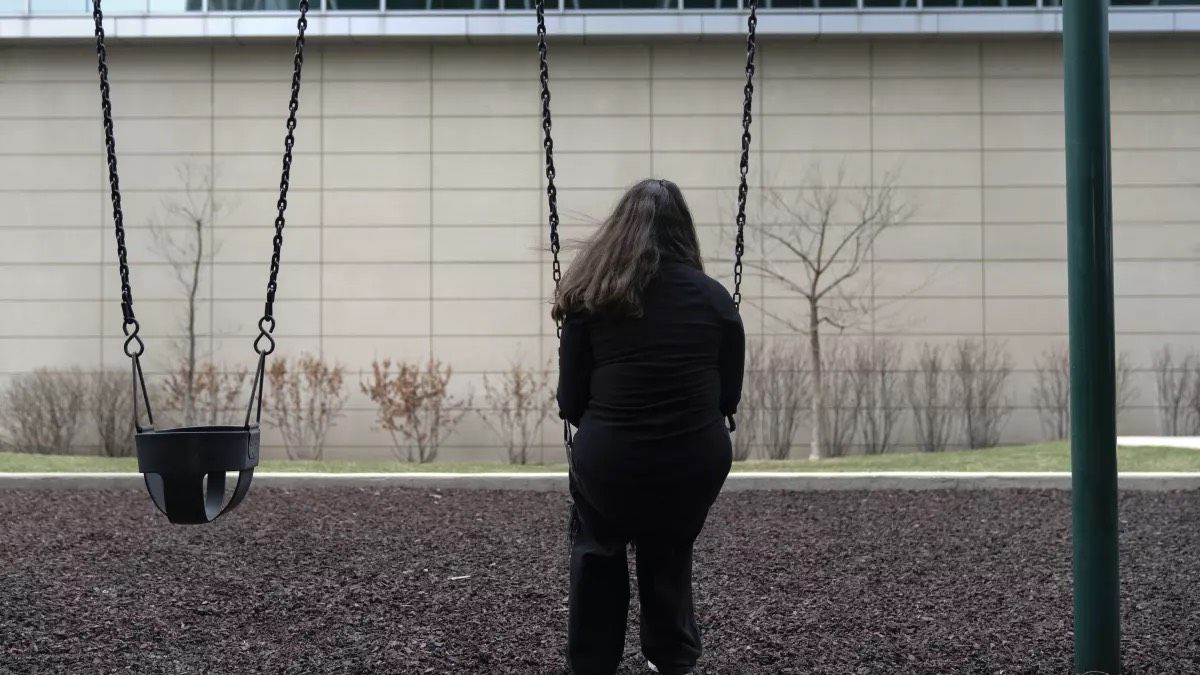Attorneys and legal experts Monday cited the success of the Judicial Nominating Commission and urged lawmakers not to pass legislation to change the state constitution and alter the state's judicial nomination process later this session, which they say will make the process highly politicized.
Senate Judiciary Committee Chair Brad Hoylman-Sigal is on board with changing the state constitution to make the judicial nomination process more transparent.
"There's so much opaqueness to the process," the senator said after Monday's Senate Judiciary Committee hearing to advance Justice Rowan Wilson's nomination to be the state's next chief judge.
The 12-member Judicial Nominating Commission — comprised of people serving four-year terms appointed by the governor, chief judge and legislative leaders — gives the governor a list of candidates to pick from for Court of Appeals vacancies.
Commissioners last month thoroughly vetted 54 applicants to finalize its list of seven nominees. The constitution requires applications and the process to remain confidential, and a growing number of lawmakers feel it stands to be improved.
"We don't know who applied, we don't know what happened behind closed doors," Hoylman-Sigal said. "And this is a crucial component of us picking the most important judges in New York."
The Legislature is expected to propose the constitutional amendment and vote later this session after the 2023-24 budget is finalized.
A months-long debacle to confirm the state's next top judge has led to conversations about potentially changing the judicial nominating process. Last week, Senate Majority Leader Andrea Stewart-Cousins said the Legislature would consider eliminating the commission and letting the governor name the nominee of the executive's choosing. The efforts are also supported in the Assembly, Speaker Carl Heastie's spokesman also said last week.
Gov. Kathy Hochul says she had casual conversations with legislative leaders about changes to the commission, but wouldn't take a specific position on what changes she supports. She maintained she is focused on this week's back-to-back Senate judicial confirmation hearings.
"I've not had conversations, we had a casual conversation," Hochul said Friday at an unrelated event in the Capitol. "I'm focused right now with dealing what's before me and fill that vacancy as soon as possible because we've gone so many months, coming up on a year of not having the full court in place."
Any changes to the commission or how it functions would require a constitutional amendment. The Legislature would not need the governor's support to change the constitution, which requires passing legislation two years in a row before heading to voters.
But several legal experts, including Adrienne Koch, president-elect of the New York County Lawyers Association, are against changing the system they argue has kept politics out of New York's judicial nominating process for decades.
"The framers who put this system together designed a system that really is quite elegant in the way that it works," Koch said Monday.
The commission's process could be changed to require the seven candidates to work in certain sectors, said Koch, but no past incidents or issues exist to support widespread reform.
New Yorkers used to elect justices to the state's highest court, the Court of Appeals, until that changed to its current judicial selection process in 1977.
"I have not personally seen any evidence that it isn't working," she added of the commission. "...Up until most recently, there has never been a nominee that's come out of that process that hasn't been confirmed."
Good-government groups and other legal experts say the commission's constitutional requirement to generate a list for the governor to choose from is the best system to keep integrity within New York's courts.
"Without the benefit of a commission can lead to serious politicization of the process, which is something that we're seeing now at the federal level," Koch said.
Senate Republicans are poised to stand against any constitutional amendment that would change or eliminate the commission.
Senate Minority Leader Rob Ortt said it will not be the best move to preserve the integrity of the Court of Appeals, which is supposed to stand independently from the Legislature. He blasted comments made by Stewart-Cousins last week, who said the Democrats in the majority conference "are not excited" by the current system and that they're weighing changing the constitution to create a process they prefer.
"What the hell does that mean?" Ortt said Monday. "When she says to 'us,' she means her conference, she means her party. We should find a system that works for New Yorkers. And that is not, Lord knows, whatever is going to come out of her conference. It certainly will not be for the betterment of New Yorkers and it certainly will not be for the betterment of New Yorkers about the integrity of the court."
Senate Republicans continue to mull taking legal action after the Legislature passed a law to remove the requirement for the commission to recommend another slate of candidates if the governor selects a new chief judge who already sits on the Court of Appeals, hastening the process, but circumventing parts of the state Constitution.
It took the commission 35 days to review applicants and release its newest list of seven judicial candidates after the Senate rejected Hochul's chief judge nominee Hector LaSalle in February.
It would have taken commissioners about one more month to complete another list to fill the vacancy expected to be created by Wilson becoming the top justice, sources say.
The recent law change marked the first time the judicial nominating process was altered in nearly 40 years. Koch says that action and Democrats' floating a constitutional amendment could come at a higher political price.
"If you want to make the process completely political, you have to take into account the fact that your party might not be the party in control of that process the next time around as we've seen at the federal level," she said.
The Commission on Judicial Nomination has not issued a statement or taken a position on changing the constitution or its nominating process. It's unlikely the group will make a public statement until members see an official proposal filed with the Legislature.










